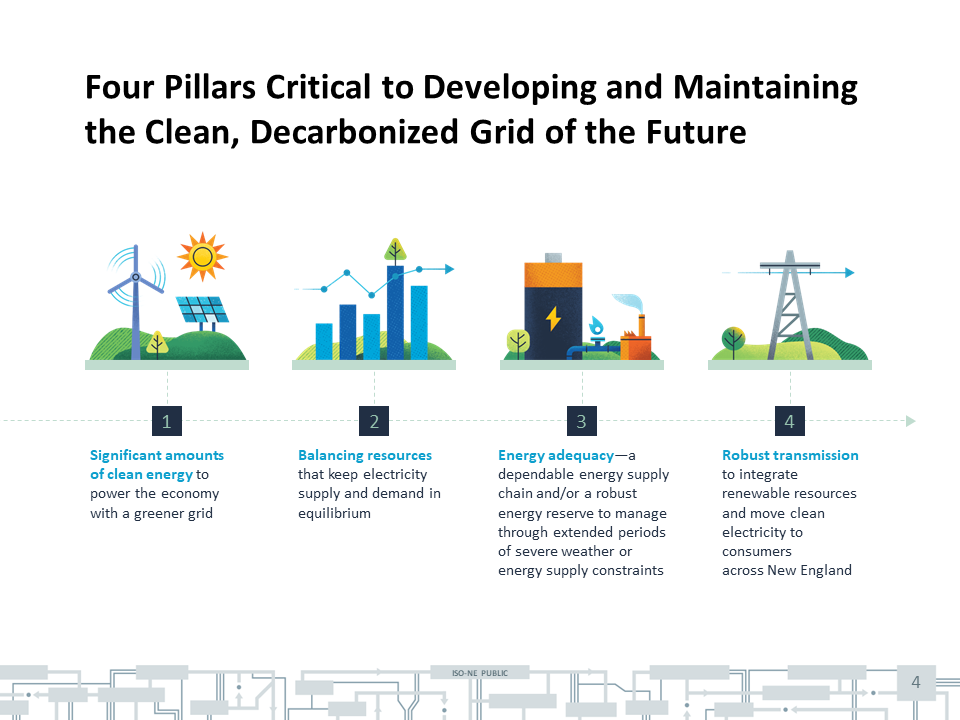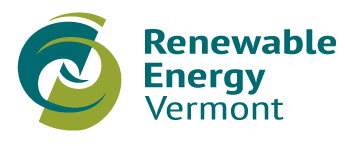The imperative to transition to renewable energy is indisputable. But while the necessity of the transition is clear, it is not without its technical challenges. Most notably, as we achieve very high levels of renewable penetration, meeting fluctuating demand with electricity generated from variable sources (wind and solar) is a dramatically different problem than grid planners and operators have historically confronted.
The REV2022 panel Regional Energy Planning for Energy Resilience – moderated by Andrea Cohen (Vermont Electric Coop) featuring Eric Johnson (ISO-NE) and Colin Owyang (VELCO) – put planning front and center in meeting this challenge.
Along with the massive expansions of renewable generating capacity, Johnson identified flexible balancing resources (potentially natural gas or storage) that can provide power when wind and solar output is low, measures to ensure the region has sufficient energy reserves, a nd robust transmission as the pillars of a decarbonized grid.
nd robust transmission as the pillars of a decarbonized grid.
Owyang highlighted four transmission system upgrades that are currently in the planning stages: the New England Clean Power Link which would run from the Quebec border near Alburgh and terminate in Ludlow, the Franklin County Line Upgrade, the New York Interies connecting Chittenden County with New York, and Phase I/II transmission facilities connecting Quebec with New England through northeastern Vermont. Completion of the Franklin County Line Upgrade will help significantly with the “SHEI” constraints that have slowed renewable development in northern recent years. VELCO anticipates submitting a CPG application for the project in early 2023 and that the new capacity would be operational in 2025 or 2026. Overall VELCO sees the projects as facilitating balancing in-state renewables with regional resources including off-shore wind, and existing hydropower facilities.
In response to audience questions, the panelist discussed the potential for aggregation of distributed energy resources such as residential solar and storage systems to contribute to reliability, as well as the role that load management can play in facilitating high levels of renewable expressing optimism about the utility of both in the larger context of a robust regional system.
